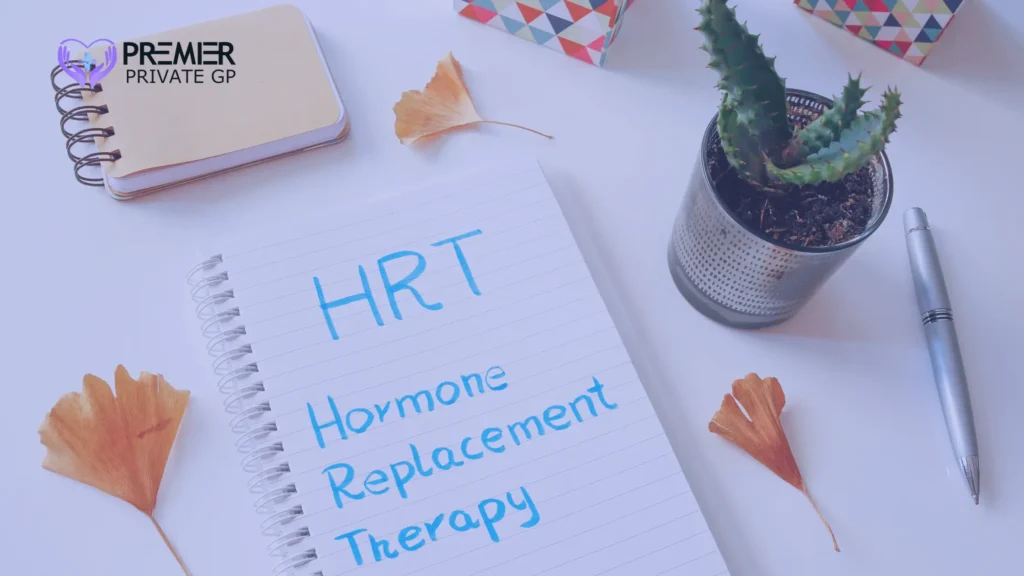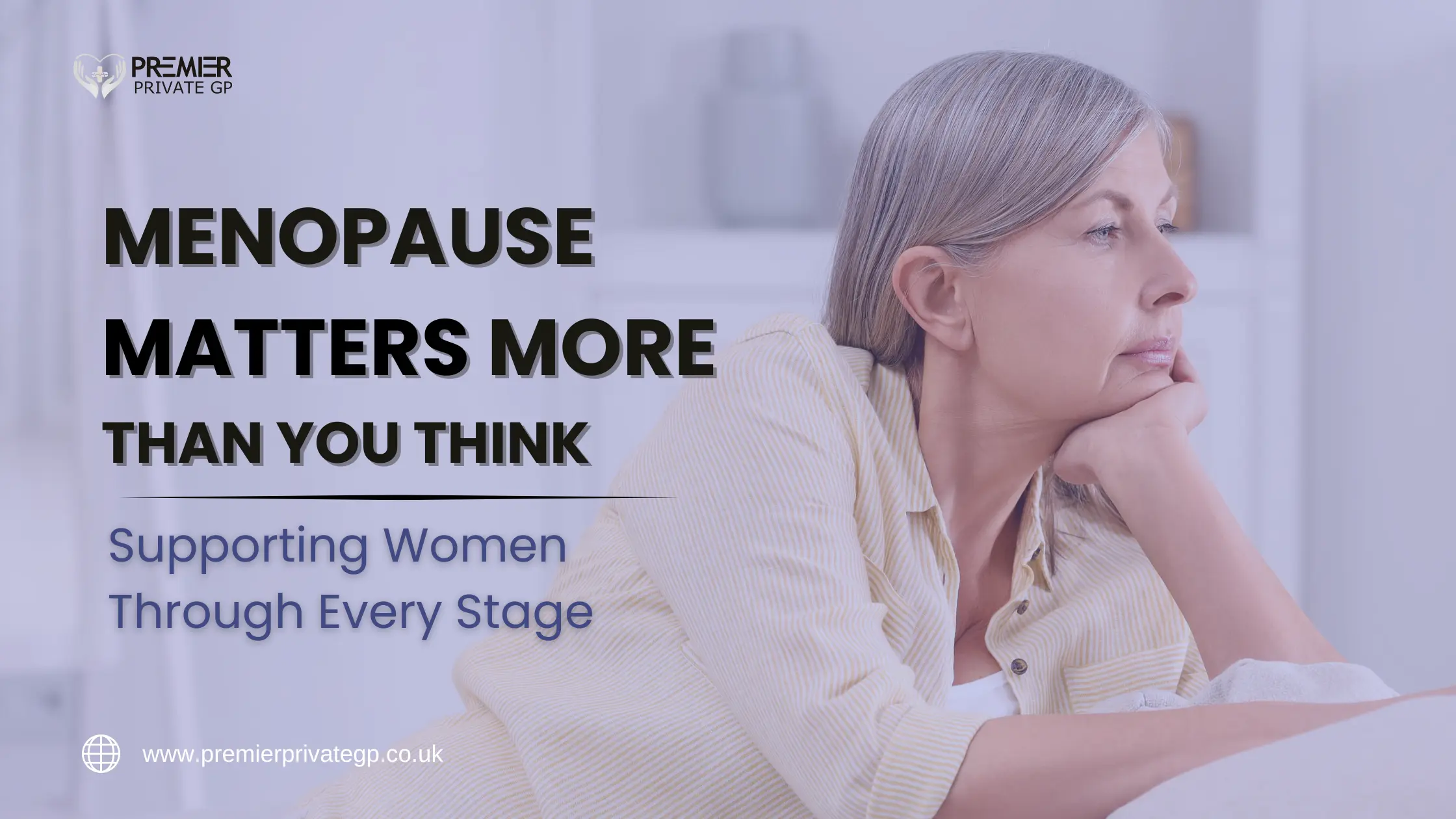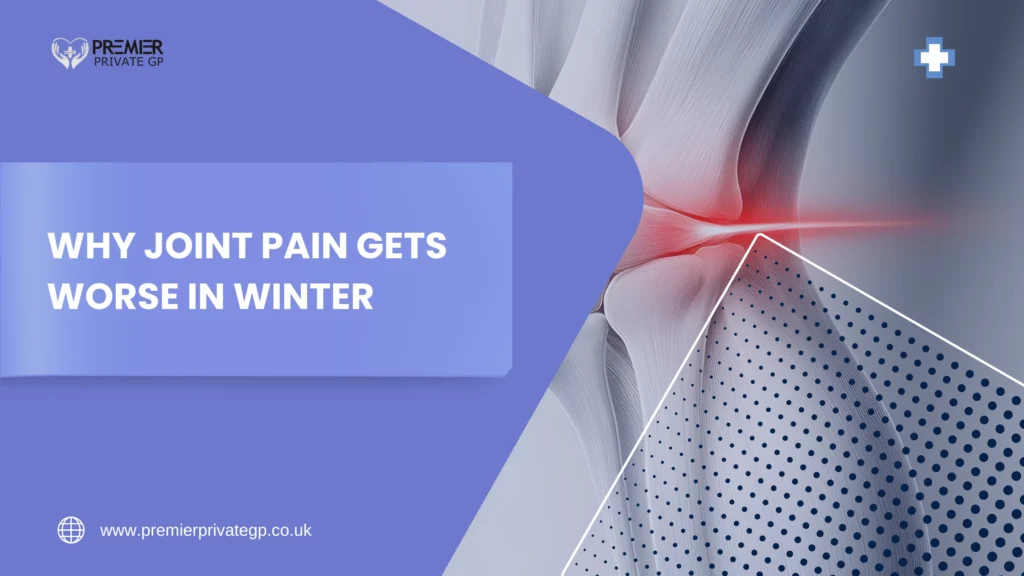A phase when a woman’s normal monthly cycle ends, that’s called menopause. However, to a lot of women, it is usually unexpected. Today you are sleeping well and the next day, you are sweating in the middle of the night at 3 am. Clothes fit differently, your energy levels go down, mood changes and you are left wondering what is going on.
The thing is that menopause matters more than we have been made to think. It is not only the few hot flashes that you have to overcome. It is a significant life change that influences not only your bones or your brain, but also your heart or your joints. And there are so many women out there who are confused, disregarded, or made to assume the responsibility of just being quiet and carrying on.
It is absolutely understandable that menopause isn’t just a hormonal shift, it’s a personal journey that can affect your sleep, confidence, day-to-day wellbeing and that’s why our support is here to make you feel like yourself even in this phase of life.
CTA: Book a menopause support consultation
What Happens During Menopause?
Estrogen and progesterone as the behind-the-scenes managers of your body. They run things smoothly, not only your periods, but your mood, your sleep, your skin, your bones, even the functioning of your brain. When these hormones begin to reduce, it can be compared to an individual who has just taken major personnel of all organisational departments.
While symptoms can feel overwhelming, what you eat can make a good impact. A balanced diet can help manage hormones and boost your energy levels. You can read more in our blog on Menopause Diet For Women Over 45, where we share practical tips for supporting your body through this transition.
What Is Perimenopause?
In case you are confused on what is perimenopause, you are not alone. You may have been told it by your doctor, or you may have encountered it on the internet but here is what it is all about. Prior to menopause itself, you have perimenopause, the build-up period which may start many years before your last period. Perimenopause is basically a period when your ovaries are slowly secreting less estrogen and usually in your 40s but can also be in your mid-30s.
During perimenopause, you might experience:
- Irregular periods (shorter, longer, heavier, or lighter than usual)
- Sleep disturbances and night sweats
- Mood swings and irritability
- Brain fog and concentration difficulties
It Doesn’t End at 50
The Reality of Post Menopause Symptoms Age 60
Nobody tells you that the symptoms don’t necessarily pack up and leave once you hit menopause. Many women dealing with post menopause symptoms age 60 and beyond are frustrated because they thought this was supposed to be over by now.
Your bones become more fragile as estrogen levels stay low – osteoporosis becomes a real concern, not just something that happens to other people. Your heart disease risk shoots up because you’ve lost that protective effect estrogen provided. Women are more susceptible to osteoporosis and cardiovascular disease after menopause, and in that case, regular health check-ups are necessary. And yes, you might still get those vaginal dryness issues, urinary problems, or brain fog that makes you forget why you walked into a room.
The point is, your body after menopause needs attention and care. This isn’t about aging gracefully and suffering quietly, it’s about staying healthy and feeling good in your 60s, 70s, and beyond.
Book your comprehensive menopause health screening
Menopause and Joint Pain
Let’s discuss menopause and its relation to joint pain. You wake up stiff. Your hands ache. Your knees feel like they belong to someone 20 years older. What’s going on?
Estrogen is anti-inflammatory, and it helps keep your cartilage healthy. When it drops, inflammation can increase, and your joints take the hit. Some women describe it as suddenly feeling rusty, especially first thing in the morning.
HRT & Other Treatments
Hormone Replacement Therapy (HRT) is a go-to solution for relieving many distressing menopause symptoms. According to NHS information, HRT benefits include reducing hot flushes, night sweats, improving mood, and helping prevent bone loss.

At Premier Private GP, we approach HRT with care:
- Thorough health screening
- Discussion of risks (like cardiovascular health, breast cancer, etc.) and benefits
- Tailored regimens (patches, creams, tablets)
- Regular reviews to adjust dose or change treatment if needed
Alongside HRT, we support menopause supplements where evidence supports them, lifestyle changes (diet, exercise, sleep), and coping strategies for joint pain and other symptoms.
Learn more about our personalised HRT consultation
Menopause Supplements
Menopause supplements promise to fix everything. Let’s talk about what actually has some science behind it:
Some supplements might help with hot flashes for some women. Like, Vitamin D and calcium are essentials for keeping your bones strong now that estrogen no longer protects them anymore.
Conversely, fish oil contains Omega-3s that may be used to treat mood, inflammation of joints, and heart conditions. Magnesium is good for sleeping and mood wise (and most of us are deficient anyway). However, you should always take advice from your doctor before you add any supplements to your daily routine particularly when you are taking other medications.
Do Herbal Remedies Work?
The NHS suggests that herbal remedies like red clover and black cohosh may be helpful to balance hormones, but there’s no scientific proof of their effect on menopause symptoms.
Menopause Test
A menopause test normally measures the level of follicle-stimulating hormone. When your ovaries start failing, your FSH shoots up as your body tries to make them functional.
Though these tests aren’t always that helpful, especially during perimenopause since one day your FSH might be high, the next week it could be normal.
Testing makes more sense if you’re under 45 and having symptoms, or if you’ve had a hysterectomy and you’re not sure what’s going on. Most of the time, though, doctors diagnose menopause based on your age, your symptoms, and whether your periods have stopped, not just a blood test.
Need help figuring out your menopause journey?
Since menopause matters, our clinic specialises in personalised menopause care. We’ll listen to what you’re experiencing, run the right tests, and create a treatment plan that actually works for your life. Book a consultation today at Premier Private GP because you shouldn’t have to figure this out alone.

FAQs
Can menopause cause dizziness?
Yes. Changes in hormones affect your inner ear and blood pressure; combined with sleep disruption, it can make you feel light-headed or off balance.
How to stop menopause bloating?
Reducing salt and caffeine, eating more wholefoods, staying hydrated, and engaging in gentle exercise like walking or yoga often help. If bloating is severe or associated with other concerning symptoms, it’s wise to consult your GP.
How to treat menopause joint pain?
Low oestrogen can contribute to joint stiffness and pain. Gentle exercise, weight-bearing activity, maintaining healthy weight, and possibly HRT can reduce discomfort. Our clinic offers targeted plans for joint care in menopause.
Can menopause cause high blood pressure?
It can contribute. Hormone changes, weight shifts, and age-related vascular changes can all influence blood pressure. Monitoring is important, especially if you have risk factors.
What causes hot flushes apart from menopause?
Heat, alcohol, spicy foods, stress, caffeine, they can all trigger flushes. Also, some medical conditions and medications mimic hot flush symptoms, so evaluation helps.







